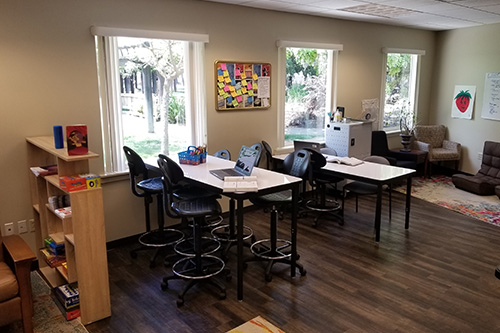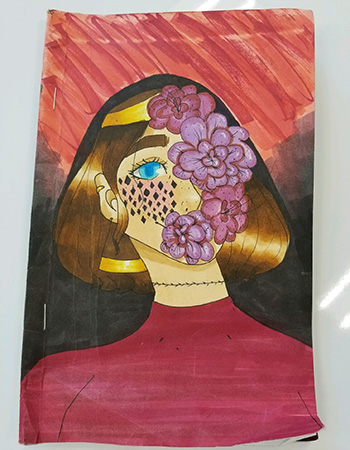Grant Spotlight | April 29, 2020
Share ThisIn the Time of Social Distancing, a Tribal Library Finds Creative Ways to Connect

“We wanted to celebrate a new kind of learning and find ways to be creative during this time.”
– Barbie Buchanan, Director of Community Services, Colusa Indian Community Council
Before the COVID-19 pandemic forced individuals across the country to stay home, about 60 tribal youth from the Colusa, California, community gathered at their local library for an afterschool program every weekday. Colusa Indian Community Council (CICC) provides tutoring for grades K–12, but for many youth, the real draw is the social connection with their peers and tutoring staff.
CICC started their afterschool program in 2008. At the time, they didn’t have a “home base” to gather, learn, and create. A year later, they received a grant from the Institute of Museum and Library Services to keep the social, emotional, and academic connections growing—which included funds to help their small community library to serve as a gathering place.
“The IMLS grant helped us to build our program into what it is today, as well as create a dedicated space and supplies,” said Barbie Buchanan, Director of Community Services, CICC. “The program really lets the kids take ownership of it and build relationships with the education staff.”
Changing the Way We Connect

People living in tribal, rural, and remote communities face existing inequities getting access to technology and a reliable internet connection, and on top of that, they’re also disproportionately affected by COVID-19. It's especially difficult to undergo social distancing, as it can lead to feelings of cultural isolation.
To bridge this digital divide, CICC’s Community Services Department began brainstorming ways to continue supporting the unique needs of these youth while overcoming the barriers that the pandemic is presenting.
“The kids expressed the need for help academically, emotionally, and socially. And not having access to the library areas and tutoring staff they have come to rely on so heavily is proving to be difficult for them,” Buchanan explained.
To mitigate these challenges, CICC needed to get creative when finding a way to help the youth connect and learn while still practicing social distancing. CICC submitted a budget change request to IMLS to use their remaining FY 2019 grant funds to purchase additional bandwidth, computer equipment, and supplies to create an environment that would support a virtual classroom.
By pivoting to address the technology issues that hindered bringing their afterschool program online, CICC is now able to offer their services in a different way. Their remaining IMLS funds allowed them to build a lending library for devices; students now have access to WiFi outside the library, tablets, and hot spots.
“We wanted to provide the youth the services they need—wherever they are,” said Buchanan.
Getting Creative with Learning Opportunities

Every week, the CICC team develops and posts enrichment activities on the virtual classroom site. These include links to virtual field trips, outdoor social distancing activities, and art projects. They were even able to mail packets with art supplies to the youth to keep them engaged in creative exercises.
To observe Earth Day, the youth tried their hand at gardening by planting wildflower seeds.
Recipes also are popular and educational, as math is incorporated through measuring ingredients. Several youth in the program are even learning how to play musical instruments.
“We went from seeing the kids on a daily basis to not seeing them at all. So, we knew we had to figure out a way to offer a path where everyone in the community can feel connected while we’re all disconnected,” said Buchanan.
Parents who had to become educators for their children overnight are thankful for the array of activities that CICC provides, as well as the social outlet the virtual program gives their children.
Looking Toward the Future
Buchanan is inspired by all the parents, guardians, and staff who worked tirelessly to make adjustments to the afterschool program when their regular schedules changed virtually overnight. Once stay at home orders are lifted, she hopes families and communities will have formed a closer bond and be stronger as a result.
“We took a step back from our lives from before,” she said, “and learned in the process that some things weren’t as important as we thought they were.”
But staying connected during a time of need? That’s essential, and CICC, along with tribal communities and libraries, are helping people feel hope for the future.
About the Project
Grant Project Name: Colusa Indian Community Council
Grant Log Number: NG-01-19-0099-19
Year Awarded: 2019
Recipient: Colusa Indian Community Council
Project Contact:
Barbie Buchanan
Director of Community Services
Colusa Indian Community Council
530-458-6576
bbuchanan@colusa-nsn.gov
Website: www.colusa-nsn.gov
